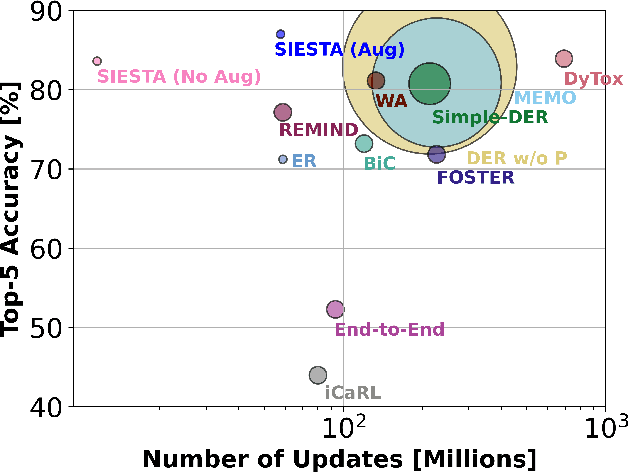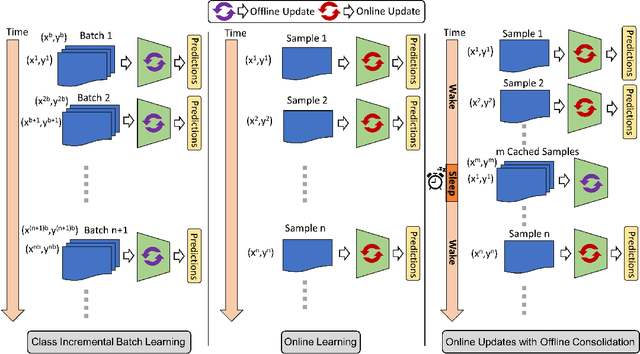SIESTA: Efficient Online Continual Learning with Sleep
Paper and Code
Mar 19, 2023



In supervised continual learning, a deep neural network (DNN) is updated with an ever-growing data stream. Unlike the offline setting where data is shuffled, we cannot make any distributional assumptions about the data stream. Ideally, only one pass through the dataset is needed for computational efficiency. However, existing methods are inadequate and make many assumptions that cannot be made for real-world applications, while simultaneously failing to improve computational efficiency. In this paper, we do not propose a novel method. Instead, we present SIESTA, an incremental improvement to the continual learning algorithm REMIND. Unlike REMIND, SIESTA uses a wake/sleep framework for training, which is well aligned to the needs of on-device learning. SIESTA is far more computationally efficient than existing methods, enabling continual learning on ImageNet-1K in under 3 hours on a single GPU; moreover, in the augmentation-free setting it matches the performance of the offline learner, a milestone critical to driving adoption of continual learning in real-world applications.
 Add to Chrome
Add to Chrome Add to Firefox
Add to Firefox Add to Edge
Add to Edge